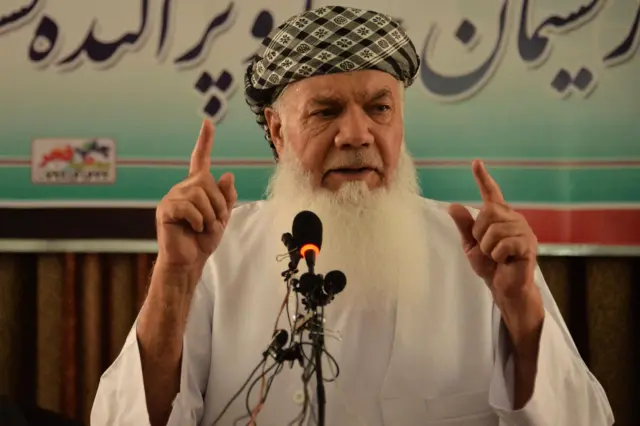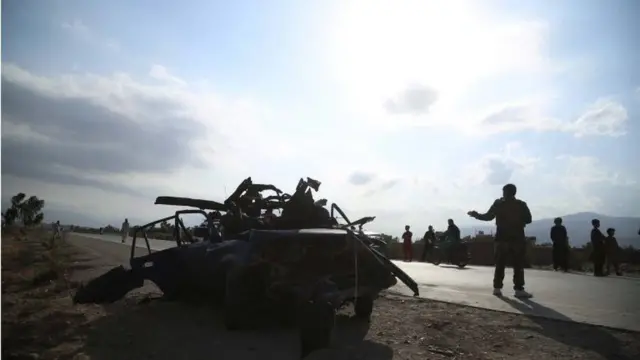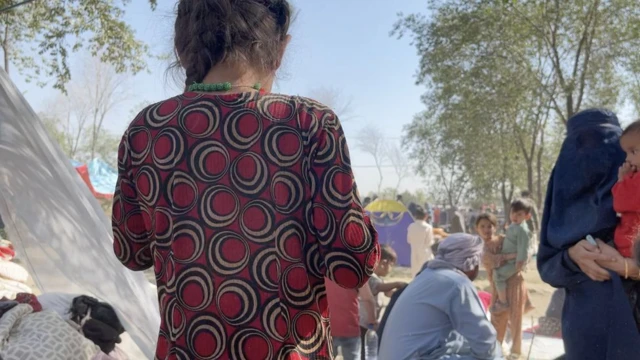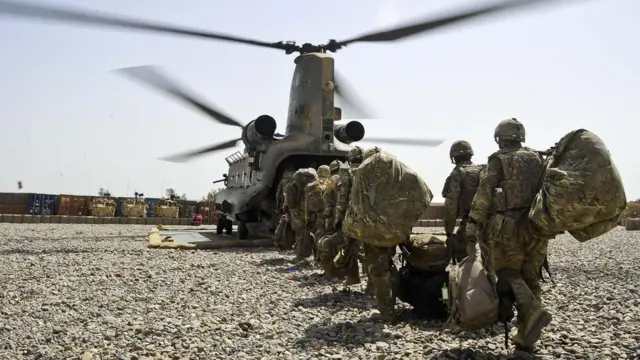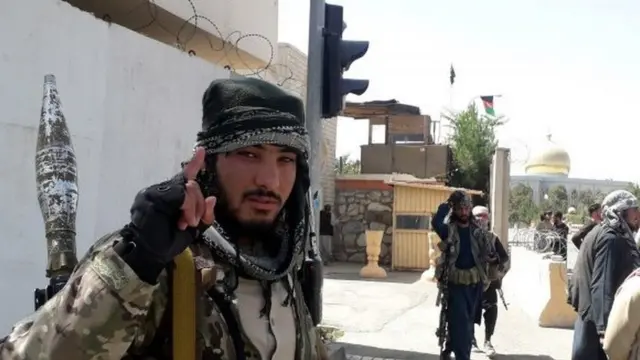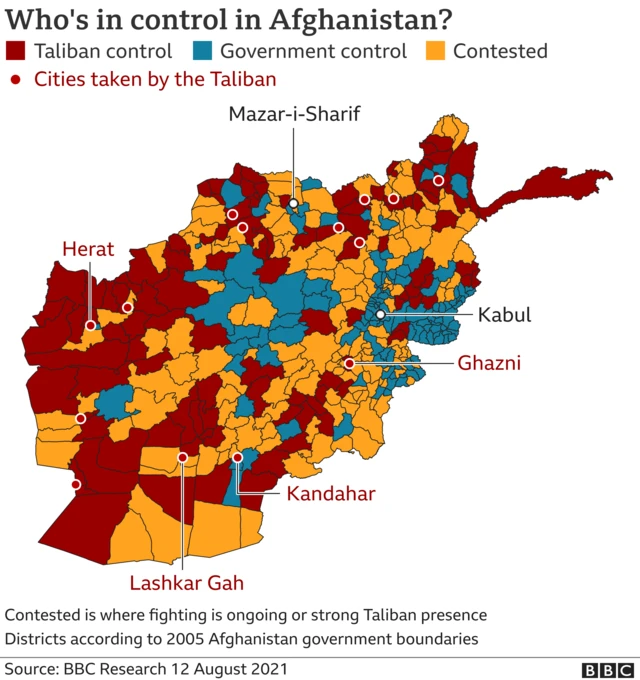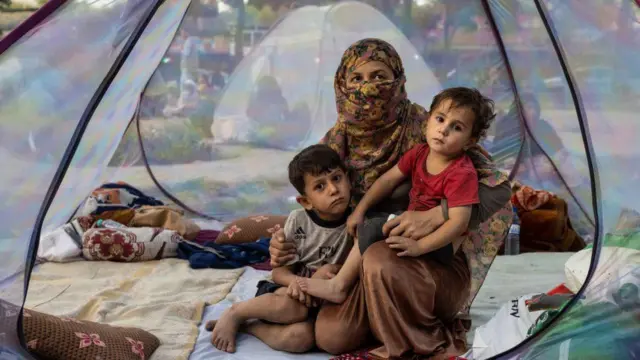'No time for bureaucracy, we must act' - Germanypublished at 10:56 BST 13 August 2021
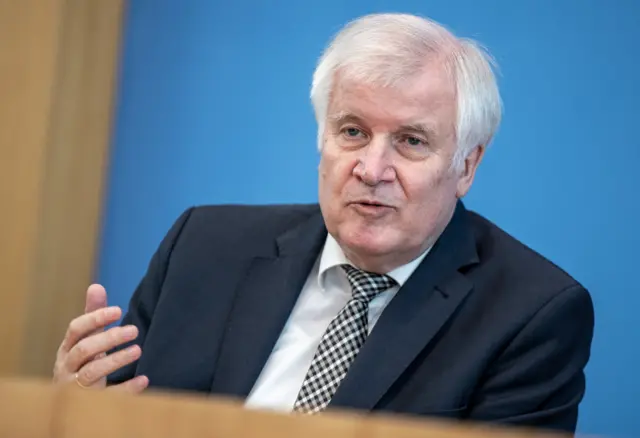 Image source, Getty Images
Image source, Getty ImagesGermany's interior minister has said his country must act quickly to help Afghans who work for its military.
"Whether charter flights or issuing visas after arrival in Germany, I support all measures that enable our local support staff and their families to leave the country quickly," Horst Seehofer said in a statement, according to Reuters news agency.
The situation in Afghanistan is becoming increasingly threatening," he added. "There is no time for bureaucracy, we must act".
Yesterday Germany revealed that it was suspending deportations for Afghan migrants whose visa applications had been rejected.
Neighbouring France and the Netherlands have already done the same.
Meanwhile Ukraine has become the latest European country to announce that it's working to evacuate its citizens from Afghanistan. Foreign Minister Dmytro Kuleba said there were between 50 and 100 Ukrainians in the country.
